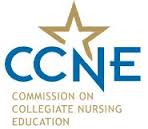Employment of New Nurse Graduates and Employer Preferences for Baccalaureate-Prepared Nurses
In August 2012, AACN conducted its third online survey of nursing schools offering baccalaureate and graduate programs in the U.S. to better assess the experience of new graduates in finding employment during these tough economic times. For the second consecutive year, AACN asked schools to identify if employers in their region were requiring or preferring that new Registered Nurse (RN) hires have at least a baccalaureate degree in nursing. A brief online survey was developed to solicit information from 847 deans of nursing schools offering baccalaureate and graduate programs. A total of 501 valid responses was received, generating a 59.1% response rate.
The Employment of New Nurse Graduates
Regional reports suggest that nursing school graduates are having difficulty finding employment, which prompted AACN to take action to quantify these claims. Two questions were asked in the August survey about the employment of new graduates from entry-level baccalaureate and master’s programs:
- What percentage of 2011 graduates from your nursing programs had job offers at the time of graduation?
- What percentage of 2011 graduates from your nursing programs had job offers within 4-6 months after graduation?
Job Offers at Graduation
Of the 501 schools that responded to the survey, 408 (81.4%) reported having an entry-level baccalaureate program (BSN) and 94 (18.8%) had an entry-level master’s program (MSN ) for which employment data for new graduates were available. The survey found that the average job offer rate at the time of graduation was 57% for new BSN graduates and 73% for entry-level MSN graduates. By comparison, the National Association of Colleges and Employers conducted a national survey of 50,000 new college graduates across disciplines and found that only 25.5% of new graduates in 2011 had a job offer at the time of graduation.
Looking closer at the AACN data, the survey found little variation in the average rate of job offers at the time of graduation by institutional type (e.g. large vs. small school; public vs. private school; doctoral degree-granting vs. non-doctoral). However, there is some variability by region of the country. For new BSN graduates, the job offer rate for schools in the South is 66% followed by 58% in the Midwest, 52% in the North Atlantic, and 42% in the West. This rate is higher across the board for entry-level MSN graduates: 79% in the South, 75% in the North Atlantic, 73% in the Midwest, and 53% in the West. These findings indicate that employment of new graduates from entry-level nursing programs is more challenging in different regions of the country.
Job Placement 4-6 Months After Graduation
With respect to job offers for new graduates 4–6 months after the completion of their programs, the survey found this rate to be 88% and 92% for entry-level BSN and MSN graduates, respectively. Once again the survey found little variation based on school type and institutional characteristics. The job offer rate for BSN graduates did vary by region, from 77% for schools in the West to 86% in the North Atlantic to 88% in the Midwest to 92% in the South. Though employment of graduates in the West lags behind the rest of the country, the job offer rate did increase considerably, by 35 percentage points from the time of graduation to the period 4-6 months out of school (42% to 77%). For entry-level MSN program graduates, the job offer rate at 4-6 months post-graduation ranged from 79% in the West to 93% in the South to 94% in the Midwest to 96% in the North Atlantic.
Employer Preference for New Nurses with Baccalaureate-Level Preparation
Once again this year, AACN asked nursing schools to identify if employers in their region were requiring or indicating a preference for hiring new nurses with a bachelor’s degree in nursing. A significant body of research shows that nurses with baccalaureate level preparation are linked to better patient outcomes, including lower mortality and failure-to-rescue rates. With the Institute of Medicine (2010) calling for 80% of the nursing workforce to hold at least a bachelor’s degree by 2020, moving to prepare nurses at this level has become a national priority.
Based on completed responses from 501 schools of nursing, 39.1% of hospitals and other healthcare settings are requiring new hires to have a bachelor’s degree in nursing (up 9 percentage points since 2011), while 77.4% of employers are expressing a strong preference for BSN program graduates.
Clearly, healthcare settings nationwide are seeing a difference in nursing practice based on the level of education and are making hiring decisions to enhance the quality of care available to patients. For more background information on this issue, see AACN’s fact sheet on the Impact of Education on Nursing Practice, which may be downloaded at http://www.aacn.nche.edu/media-relations/EdImpact.pdf.
References
Institute of Medicine. (2010). The Future of Nursing: Leading Change, Advancing Health. Washington, DC: National Academies Press.
National Association of Colleges and Employers. (2011, September). The Class of 2011 Student Survey Report. Retrieved from http://www.naceweb.org.
Complete survey information and data tables are available to AACN member schools and stakeholders by contacting Research Assistant, Yan Li at 202-463-6930, ext. 236 yli@aacn.nche.edu
Copyright © 2013
American Association of Colleges of Nursing
All rights reserved
American Association of Colleges of Nursing
One Dupont Circle, NW Suite 530
Washington, DC 20036
Phone: (202) 463-6930
Fax: (202) 785-8320




Social Media